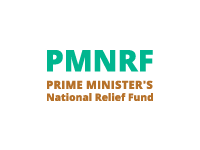Salient features of the Standards of Weights and Measures Act, 1976 are as follows:
Establishment of the weights and measure based on the SI units, as adopted by the CGPM and recognized by the OIM
- Provides to prescribe specification of measuring instruments used in commercial transaction, industrial production an measurement involved in public Health and Human safety. The specifications are given in the Standard of weights and Measures (General) Rules 1987.
Standards of Weights And Measures Act in Detail Unit
Abbreviation
Mass
Kilogram (kg), gram (g), milligram (mg)
Length
Metre (m), centimetre (cm), milli metere (mm)
Area
Square metre (m2)
Capacity
Kilo litre (kl), litre (l or L), milli litre (ml)
Temperature
Degree Celsius (°C) of Degree Kelvin (°K)
Volume
Cubic metre (m3), Cubic Centi-metre (cm3) cubic milli metre (mm3)
- Regulation of inter-state trade and commerce in weights and measures and commodities sold, distributed or supplied by weights or measures;
- Regulation of pre-packed commodities sold or intended to be sold in the course of inter-state and commerce;
- Approval (before manufacture) of models of weights and measuring instrument intended to be manufactured after the commencement of the proposed legislation;
- Control and regulation of export and import of weights and measures and commodities in packaged form;
- Establishment of an Indian Institute of Legal Metrology to provide training in legal metrology to inspectors and others;
- Surveys and collection of statistics for facilitating planning and enforcement of the proposed legislation.
- Inspection of weighing and measuring instruments during their use to prevent fraudulent practices.
- Powers of inspectors to search, seize and forfeiture of non-standard weight or measure
- Power to file case in the court for prosecution
- Power to compound certain cases before or after the institution of the prosecution cases.
- Appeal provisions
- Prescribe fee for various service rendered
- Power to make rules for implementing the provisions of the Act.









 उपभोक्ता मामले विभाग
उपभोक्ता मामले विभाग










